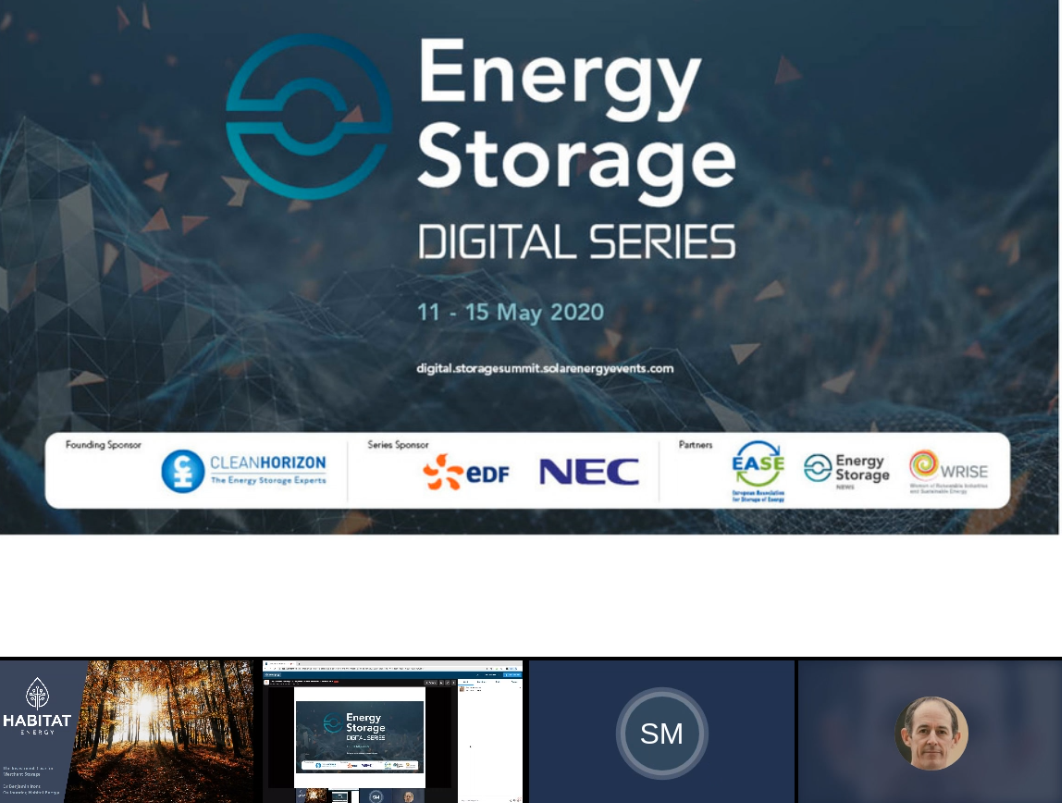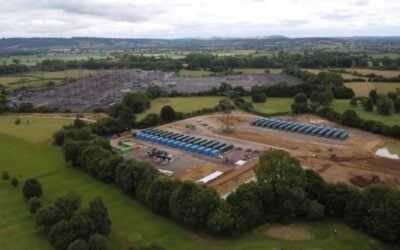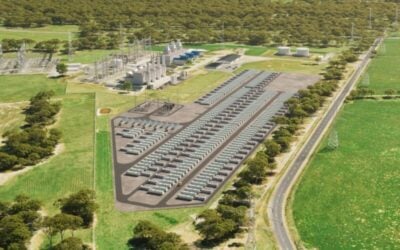
Merchant energy storage has become an investable asset class in the UK, a provider of battery optimisation services has said, with the market moving away from an emphasis on contracted revenue streams for supplying grid services.
Dr Ben Irons, co-founder at Habitat Energy, said that “three years or so ago, firm frequency response (FFR) contracts were where 100% of the action was for battery storage in the UK,” as battery storage became eligible to provide the grid-balancing service to transmission system operator (TSO) National Grid.
Enjoy 12 months of exclusive analysis
- Regular insight and analysis of the industry’s biggest developments
- In-depth interviews with the industry’s leading figures
- Annual digital subscription to the PV Tech Power journal
- Discounts on Solar Media’s portfolio of events, in-person and virtual
However, according to Irons, the idea of a contracted revenue stream “gave a false sense of security,” with contracts generally only two years long for FFR, and even the longer contracts award through the UK’s landmark 200MW tender for enhanced frequency response (EFR) were four years and were “quickly snapped up”.
Speaking to Energy-Storage.news following his appearance at last week’s online Energy Storage Digital Series conference – at which he explained instead that merchant opportunities including arbitrage have matured to provide decent revenues for Habitat’s clients – Ben Irons said that those two or even four years contracts were not “nearly enough to cover the investment horizon or reach a payback on capex, without coming back for a series of further contracts later”.
“The problem was there was no guarantee on the price for those subsequent contracts, as many early battery investors learned to their cost when the FFR price dropped from 19 to 5 £/MW/hr in the space of a couple of months,” Ben Irons said.
This business model in itself carried a form of merchant risk, therefore, and as often stated on this site by other industry commentators and experts the frequency response market is fairly shallow and quickly saturated once fast-responding battery assets begin to join in.
Investable merchant revenues being ‘delivered consistently on operational assets’
While today, the merchant risk is more visible, coming every 30 minutes rather than every two years, during his presentation, ‘The future is arbitrage: a deep dive into the merchant model’, the Habitat co-founder said that merchant storage needs to offer unlevered IRR of 10% to 12% to be investable. Needing to achieve £40,000 (US$49,500) to £50,000 per MWh from trading to hit target IRRs is possible, and Irons claimed that such revenues are available today and being “delivered consistently on operational assets”.
“Habitat has been pushing the merchant arbitrage model as an alternative to FFR for a couple of years now, and while the optimisation is very much more complex than for FFR – where you pretty much just do what National Grid tells you – the benefit is not only more revenue, but also less risk of saturation given the wholesale markets are very much deeper than FFR,” Ben Irons said in a quick interview after the presentation.
Habitat, which uses its own proprietary trading platform, PowerIQ for fully algorithm dispatch optimisation (albeit overseen by human eyes), “would of course take an FFR contract” once a battery is operational for any periods when the price is better than that available from arbitrage, Irons said, but this is nowadays a limited opportunity, typically only during overnight periods.
“We always recommend to our clients that they don’t factor any upside from FFR into the investment decision but rather base this wholly on arbitrage, since in the long term we would expect FFR prices to settle down to be exactly in line with arbitrage.
“You could say arbitrage creates the long term ‘floor’ for battery revenue potential so is the more important thing to focus on than ancillary service contract prices when committing the capital.”
This could change somewhat in the future, Irons said, if National Grid or the various distribution network operators (DNOs) in Britain start to offer ancillary services contracts with a locational element, creating the potential to make “super-normal profits over the medium term if your asset is in the place National Grid or the DNO happens to need it,” but this would the the only exception the Habitat Energy co-founder could foresee, he said.
You can still register – free – to view sessions from last week’s Energy Storage Digital Series on-demand (spaces limited). Visit the site here.






